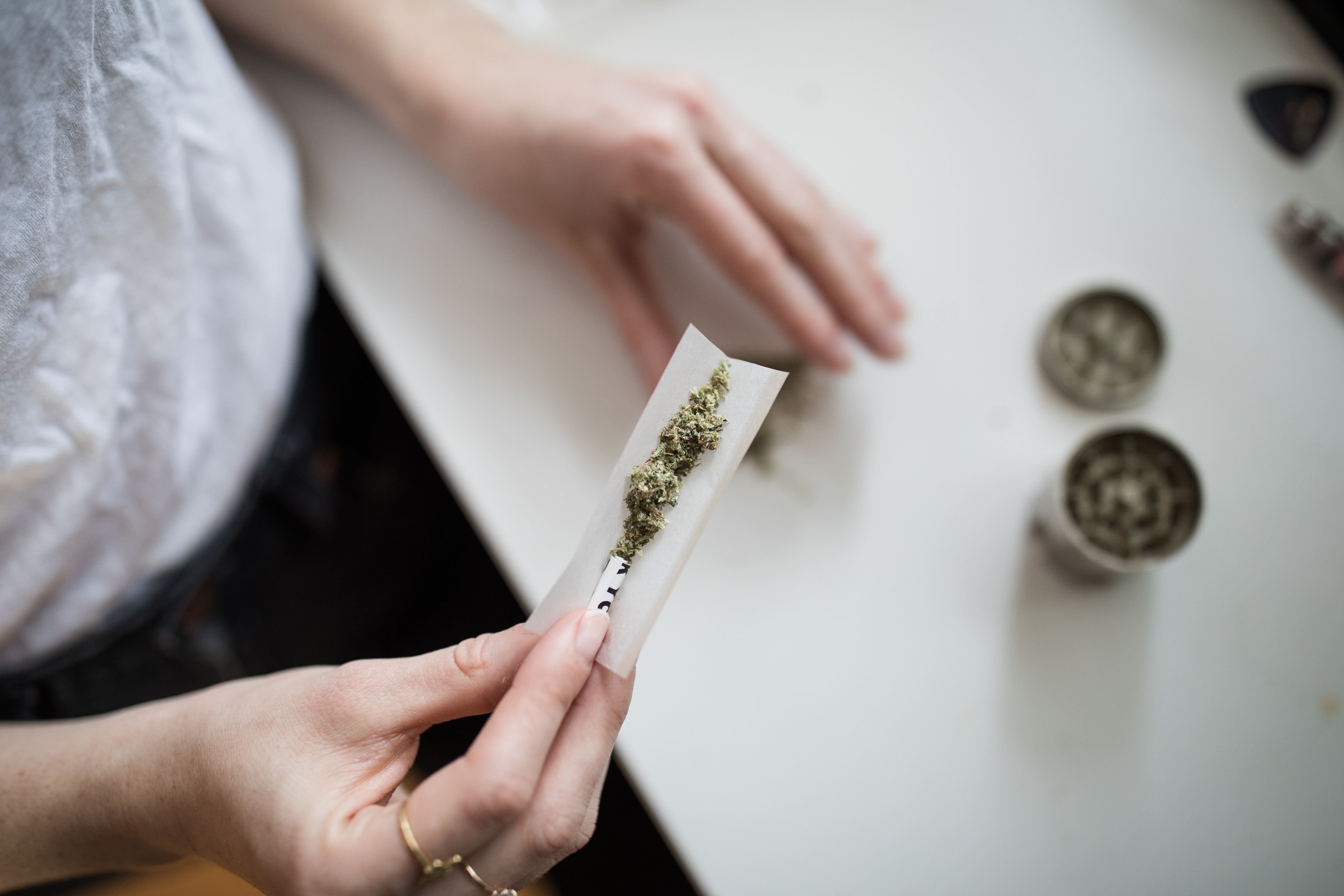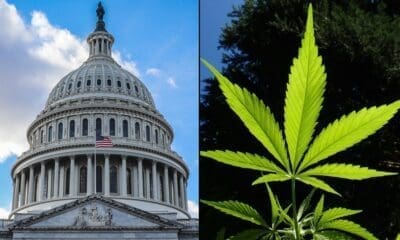Politics
North Carolina Governor Backs Marijuana Decriminalization And Directs Lawyers To Review Pardon Options

The governor of North Carolina is officially backing marijuana decriminalization in the state, saying it’s time to “end the stigma” and announcing steps he’s taken to explore his options for independently granting relief to people with existing convictions.
Gov. Roy Cooper (D) spoke about the policy on Friday during a meeting of a criminal justice task force that he convened in 2020. That panel ultimately recommended decriminalization, and this marks the first time the governor is explicitly endorsing the reform.
Cooper raised the issue in response to President Joe Biden’s surprise actions on Thursday to pardon people who’ve committed federal marijuana possession offenses and call on governors across the U.S. to provide similar relief at the state-level.
“This task force has already met this issue head-on by recommending…that simple possession of a small amount of marijuana should not be a crime,” he said. “Law enforcement and the criminal justice system are under-resourced right now, and they should be focused on stopping violent crime, drug trafficking and other threats to safe communities.”
“We also know that a conviction of simple possession can mar people’s records for life and maybe even prevent them from getting a job,” Cooper said. He added that while the legislature declined to act on the panel’s reform recommendation last session, “I believe they should.”
“North Carolina should take steps to end this stigma,” he said. “I’ve also asked our lawyers to examine North Carolina law regarding simple possession of marijuana convictions and pardons to determine if there is action we can and should take.”
While dozens of governors around the country have already reacted to Biden’s call to consider mass cannabis pardons—with some saying they are reviewing options and others stating outright opposition—Cooper’s directive to state attorneys to review his powers represents the most significant action from a state executive so far following the president’s request.
The report from the North Carolina task force, which is chaired by state Attorney General Josh Stein (D), also included a recommendation for the state to initiate a study on whether to more broadly legalize cannabis sales.
Stein has previously voiced support for decriminalization. He said in response to Biden’s call to action on Thursday that “people should not have a federal criminal record for something that is legal in an increasing number of states,” and he looks forward to “working with the legislature in the coming months to help move NC forward as well.”
Let's act – and let’s get it right. That means decriminalizing adult use, expunging past convictions for simple possession, and including strong protections for kids, no advertising, state controlled sales, and putting NC farmers first. (2/2)
— Josh Stein (@JoshStein_) October 6, 2022
“Let’s act—and let’s get it right,” he said. “That means decriminalizing adult use, expunging past convictions for simple possession, and including strong protections for kids, no advertising, state controlled sales, and putting NC farmers first.”
Meanwhile in North Carolina, the Senate approved a bill to legalize medical cannabis in June, but it House Republicans blocked it from advancing further following an internal caucus.
House Speaker Tim Moore (R) was among those key lawmakers who downplayed the idea of enacting the legislation this year, saying recently that “there are a lot of concerns” with the proposal from Sen. Bill Rabon (R).
—
Marijuana Moment is tracking more than 1,500 cannabis, psychedelics and drug policy bills in state legislatures and Congress this year. Patreon supporters pledging at least $25/month get access to our interactive maps, charts and hearing calendar so they don’t miss any developments.
![]()
Learn more about our marijuana bill tracker and become a supporter on Patreon to get access.
—
A poll released in May found that 82 percent of North Carolina voters are in favor of legalizing medical cannabis—including 75 percent of Republicans, 87 percent of unaffiliated voters and 86 percent of Democrats.
A separate question found that 60 percent of voters back adult-use legalization.
The survey showed an increase in support for medical cannabis legalization since voters were prompted with the question earlier this year, with the results showing that with three in four say patients should have access to marijuana for medical use.
For what it’s worth, Senate President Pro Tempore Phil Berger (R) has acknowledged that opinions are shifting when it comes to marijuana in the state, and he said that Rabon specifically “for a long time has looked at the issue.”
Under current law, possessing more than half an ounce up to 1.5 ounces of cannabis is a class 1 misdemeanor, subject to up to 45 days imprisonment and a $200 fine. In 2019, there were 3,422 such charges and 1,909 convictions, with 70 percent of those convicted being nonwhite.
















